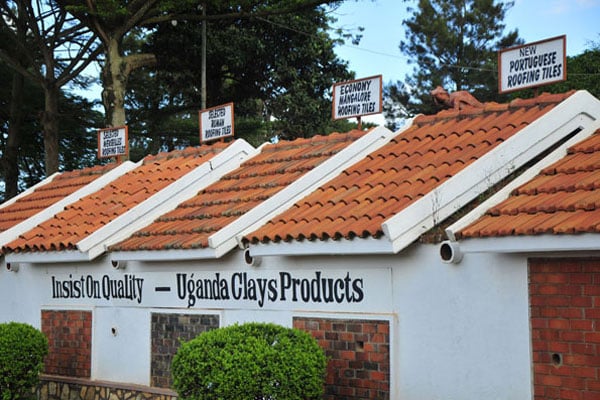Uganda Clays renegotiates NSSF’s Shs20b loan

Uganda Clays says that although it made some money between 2021 and 2023, it was not sufficient to service the NSSF loan. Photo / File
What you need to know:
- In 2010, Uganda Clays obtained a Shs11.05b loan, but had by 2015 risen to Shs20.6b due to non-payment
Uganda Clays has renegotiated a Shs20.6b National Social Security Fund (NSSF) loan due to a weakened cash flow position.
In details contained in its 2023 annual report, Uganda Clays said during the year it faced financing costs of Shs1.8b, 325 percent higher than in 2022 due to the NSSF loan renegotiation to extend repayment from 2025 to 2030.
This, the clay products manufacturer said, therefore, resulted in notional interest expense of Shs1.6b, with the modification resulting into a rise in NSSF’s equity from Shs41b to Shs43b.
“In order to manage debt, NSSF and Uganda Clays signed a debt restructuring agreement, which now requires Uganda Clays to start loan repayments on January 2, 2025, with 10 equal installments paid semi-annually and interest chargeable at 14 percent annually. The modification saw the carrying amount decrease to Shs17.4b from Shs20.6b,” the report reads in part.
On December 27, 2010, Uganda Clays obtained a 10-year loan of Shs11.05b from NSSF to finance working capital at an interest of 15 percent annually.
However, due to cash flow challenges Uganda Clays failed to sufficiently finance the loan, which by 2015, had accumulated to Shs20.6b, forcing it to seek a freeze on the accumulation of interest until such a time when the two companies would agree on a mutually favourable repayment model.
In May 2023, NSSF and Uganda Clays signed an addendum to the initial loan contract, giving Uganda Clays a new repayment schedule and a change in contractual terms necessitated by a cash flow challenge that affected its ability to meet the original repayment terms.
The report further indicates that between 2021 and 2023, whereas Uganda Clays’ cash flow position had improved, it was not sufficient to finance the loan, thus, the need to restructure it even as the company had returned to profitability after years of posting losses.
The company has been facing stiff competition in the construction and building sector, coupled with interruptions in supply chain, and operational challenges at its plants, especially Kamonkoli in Mbale District, which has for years operated below capacity.
“With the introduction of new players and expansions in the production capabilities of existing players, competition in the roofing sector has become stiffer. At least seven in every 10 households are currently using iron sheets for roofing, a trend we are trying to reverse by making our products more affordable,” the company said.
Uganda Clays, which is majority-owned by NSSF (32 percent), in the period ended December 2023 experienced a 20 percent decline in revenue, falling to Shsh30.4b from Shs36.6b, returning to a loss-making position, in which it posted a loss of Shsh2.85b from a profit of Shs2.44b in 2022.
The company also registered a 325 percent increase in financing costs due to the NSSF loan renegotiation, and further noted there would be no dividend payments with focus now put on “leveraging our financial capital to navigate economic uncertainty and maintain stability”, part of which it would seek external financing to strengthen its financial position and improve production capacity.





